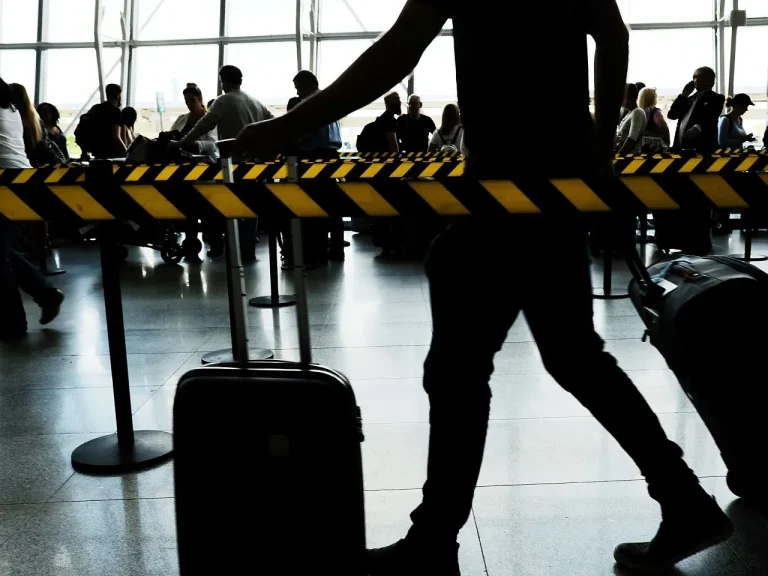Applying for jobs, schools, or visas in a new country often requires providing identification numbers specific to residence status.
Residence permits, often called by numbers, are documents that validate a foreign national’s legal right to live and work in a country for a fixed period.
If you’re short on time, here’s a quick answer: A residence permit number is an identifier assigned by immigration authorities to legal foreign residents. Alternate IDs like national insurance numbers function similarly.
Check requirements to provide the right residence ID number when applying for jobs, services, or visas in a new country.
What is a Residence Permit?
A residence permit, also known as a residency card or visa, is an official document issued by a government that allows an individual to legally reside in a particular country for a specific period of time.
It serves as proof of the person’s authorized presence in the country and may grant them certain rights and privileges.
Purpose and Eligibility
The purpose of a residence permit is to regulate the stay of foreigners in a country. It ensures that individuals who wish to live or work in a foreign country meet the necessary requirements and comply with immigration laws.
Eligibility criteria for a residence permit vary from country to country, but generally include factors such as employment, study, family reunification, or investment.
For example, in the United States, individuals can apply for a Green Card, which is a permanent residence permit granted to immigrants who are eligible to live and work in the country.
In European countries, residence permits may be issued to non-EU citizens who have a job offer or are studying at a university.
Application Process
The application process for a residence permit typically involves submitting an application form, supporting documents, and paying the required fees. The specific requirements may vary depending on the country and the purpose of the permit.
In many cases, applicants may be required to provide proof of financial stability, health insurance coverage, a clean criminal record, and a valid passport.
They may also need to attend an interview or provide biometric data, such as fingerprints or a photograph.
Length of Validity
The length of validity for a residence permit varies depending on the country and the type of permit. Some permits are temporary and need to be renewed periodically, while others may be issued for a longer duration or even indefinitely.
For instance, in Canada, a work permit can be issued for a specific job and remain valid for the duration of the employment contract. In contrast, a permanent resident card in Canada is typically valid for five years and can be renewed upon expiration.
It is important to note that residence permits may have certain conditions attached to them, such as restrictions on employment or the need to maintain a certain level of income.
Failure to comply with these conditions may result in the revocation of the permit.
For more information on residence permits in specific countries, it is advisable to visit the official government websites or consult with an immigration lawyer.
Using Your Residence Permit Number
Once you have obtained a residence permit, you will be assigned a unique Residence Permit Number or equivalent.
This number plays a crucial role in various aspects of your life as an expatriate. Let’s explore how you can make use of this number:
Proof of Address and Legal Status
Your residence permit number serves as proof of your address and legal status in the country you are residing in. It is an official document that confirms your right to live and work in that particular country.
This number is often required when you need to provide proof of address for various purposes, such as opening a bank account, signing a rental agreement, or applying for certain government services.
Applying for Visas
If you are planning to travel to other countries while residing in a foreign land, your residence permit number will be essential for applying for visas.
Many countries require you to provide this number as part of the visa application process.
It helps authorities verify your legal status and ensures that you are eligible to enter their country.
Accessing Services
Your residence permit number acts as an identification number that enables you to access various services and benefits provided by the government. These services may include healthcare, education, social security, and more.
Having this number readily available will streamline the process of applying for these services and ensure that you receive the assistance you are entitled to.
It is important to keep your residence permit number safe and secure, as it is a valuable piece of personal information. Treat it with the same level of confidentiality as you would your passport or other identification documents.

Referencing Your Residence ID Number
When it comes to referencing your residence ID number, accuracy is key. Whether you have a residence permit number or an equivalent identification, it is essential to cite the complete number accurately.
This ensures that your identification is correctly documented and recognized by the relevant authorities.
Mistakes or omissions in your ID number can lead to administrative issues and delays in processing important documents.
Cite the Complete Number Accurately
When referencing your residence ID number, make sure to include all the digits and characters provided.
This includes any letters, numbers, or special characters that are part of the identification sequence. Double-check the number against your official documents to avoid any discrepancies.
Remember, even a small error in citing your residence ID number can cause significant problems in legal and administrative processes.
Follow Document Guidelines
Each country or region may have specific guidelines for referencing residence ID numbers. It is important to familiarize yourself with these guidelines and follow them diligently.
Some documents may require the full ID number to be referenced, while others may only require a specific portion of it.
By adhering to the guidelines, you can ensure that your references are accurate and in compliance with the required format.
Failure to do so can result in issues with immigration, employment eligibility, and other legal matters.
Update if Status Changes
If your residency status changes or you receive a new identification document, it is important to update your residence ID number accordingly. This ensures that your references are current and reflect your current legal status.
Failure to update your ID number can lead to confusion, delays, and potential legal complications.
For example, if you obtain a new residence permit or a new identification card with a different number, it is vital to inform the relevant authorities and update your records accordingly.
This helps to maintain accurate documentation and ensures a smooth transition in your legal processes.
Remember, your residence ID number is a unique identifier that plays a crucial role in various aspects of your life.
By referencing it accurately, following document guidelines, and updating it when necessary, you can avoid unnecessary complications and ensure a smooth administrative process.
Checking Status or Reporting Errors
Once you have obtained a residence permit number or its equivalent, it is important to regularly check your status to ensure its accuracy and validity.
This will help you avoid any potential issues or complications that may arise due to errors or discrepancies in your documentation.
Here are some steps you can take to check your status or report any errors:
Contact Issuing Authority
The first and most straightforward step is to contact the issuing authority responsible for your residence permit. They will have the most up-to-date information regarding your status and can provide you with any necessary assistance.
Whether you have concerns about the validity of your permit or have identified an error in your documentation, reaching out to the issuing authority is the best way to address these issues.
Validate Before Important Applications
Prior to submitting any important applications or documents that require your residence permit number, it is crucial to validate its accuracy.
This is especially important when applying for jobs, opening bank accounts, or enrolling in educational institutions.
Validating your residence permit number ensures that you are providing correct information, which will help streamline the application process and avoid any delays or complications.
Seek Help from Immigration Experts
If you encounter any challenges or difficulties in checking your status or need assistance in reporting errors, it is advisable to seek help from immigration experts.
These professionals are well-versed in immigration laws and regulations and can provide you with guidance and support.
They can help you navigate the necessary procedures and ensure that your concerns are addressed effectively and efficiently.
Remember, maintaining accurate and up-to-date information regarding your residence permit is essential for a smooth and hassle-free experience.
By following these steps and seeking assistance when needed, you can ensure that your documentation is in order and avoid any potential issues down the line.
Conclusion
Residence permits and associated ID numbers validate the legal status of immigrants and foreign nationals in a given country.
Understanding how to obtain, reference, and leverage your residence number or alternate equivalent ID can be critical for accessing essential services, maintaining visa status, and proving eligibility for jobs or education.
With the proper residency identification number, foreign nationals can legally work, study, or conduct day-to-day activities in countries around the world.






